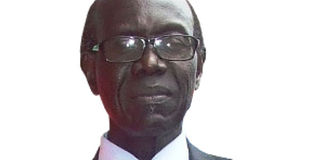Nigeria @60: Facing challenge of forging national unity

In four days’ time, on October 1, Nigeria, the most populous country in Africa, will celebrate the 60th anniversary of independence. I would like to convey warm and fraternal congratulations to the people and government of Nigeria on this historic occasion.
Like Uganda, Nigeria has since 1960 faced numerous challenges in nation building, including military coups, systemic corruption and a bitter civil war which caused untold suffering, destruction and loss of about one million lives, according reliable sources.
The bitter, ugly and protracted Biafra war coincided with the period I was an undergraduate student at Makerere University (1967 to 1970). Uganda played a constructive and positive role in efforts to find a negotiated solution to that war. In 1968 then president Milton Obote hosted peace talks between Biafra and Nigeria in Kampala. The peace talks regrettably did not succeed, but it was a worthwhile effort which Nigerians appreciated.
The struggle to forge national unity and heal the deep wounds inflicted upon Nigeria’s body politic by the civil war continues to elude Africa’s largest economy and potential leader. In this regard, Nigeria, which has produced world-class authors such as Chinua Achebe and Wole Soyinka, deserves better political leaders who can steer the country in the right direction. A united, stable and prosperous Nigeria is good for Africa.
Because of the positive and pan-Africanist role Uganda played in African affairs in the 1960s, many Nigerians took refuge in Uganda. Two of my lecturers at Makerere, Prof Uzoigwe and Dr Edet Udo, were Nigerians. Today, the NRM regime is doing the exact opposite; playing a shameful and negative role in African politics, such as its wanton invasion of DR Congo in the 1990s and recently its interference in the internal affairs of South Sudan. What a disgrace! The corrupt, decadent and unpatriotic ruling clique claims and pretends to be a champion of pan-Africanism. Africans must judge them by their deeds, not words.
At a personal level, I have many Nigerian friends and colleagues whom I would like to salute on this momentous occasion. Dr Julius Ihonvbere, a renowned political scientist who, like me, is an alumnus of the University of Toronto, Ambassador Ejoh Abuah and Ambassador Geoffrey Onyeama who is Foreign minister of Nigeria. I wish Nigeria every success.
On a sad note, October 1 is the first anniversary of the passing on of my friend and fellow member of UPC, Joseph Bossa (RIP). I thank God for Bossa’s exemplary life and effective leadership of UPC. May the good Lord continue to bless, protect and provide for Ms Solome Bossa and her family!
In his book titled, Reflections on the 1966 Political Crisis, Bossa wrote that, “the 1966 Crisis is the bogeyman some people batter UPC over the head with politically. If the whole truth about it were known, they would lose their political tool. They are afraid of the truth.”
Some of the truth Bossa talked about was revealed recently by Mr Ephraim Muwanga, son of Mzee Paulo Muwanga, vice president during the second UPC administration (1980 to 1985).
In a story published in Saturday Monitor of June 6, Ephraim argued categorically that the mastermind who triggered events which caused and culminated in the 1966 Crisis was Grace Ibingira who was a Cabinet minister in the first UPC administration and UPC secretary general. If there is anybody to blame squarely for the 1966 Crisis, Ibingira is the man. I thank Ephraim for telling Ugandans the bitter and unpleasant truth because only the truth will set Uganda free!
Mr Acemah is a political scientist and retired career diplomat.
[email protected]


